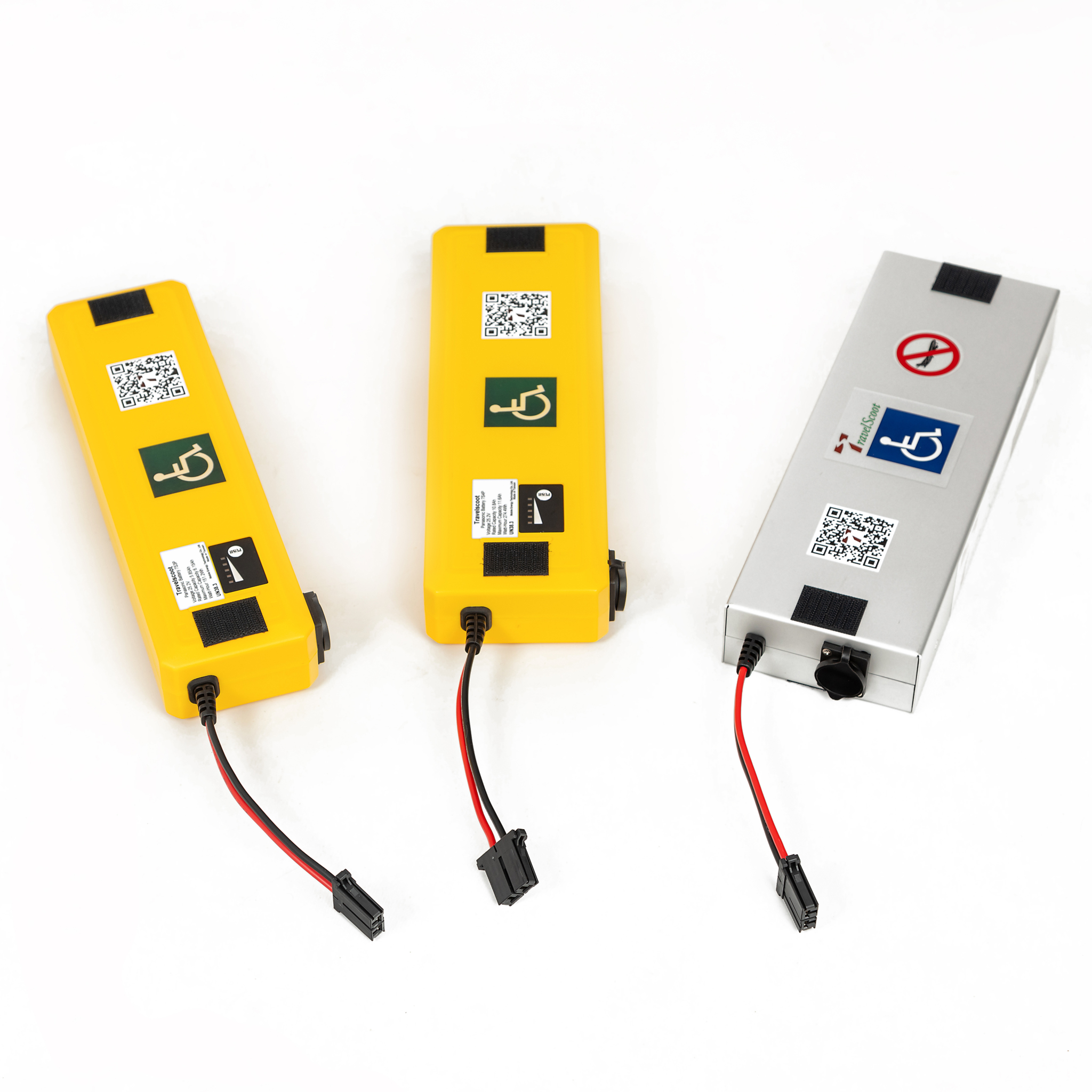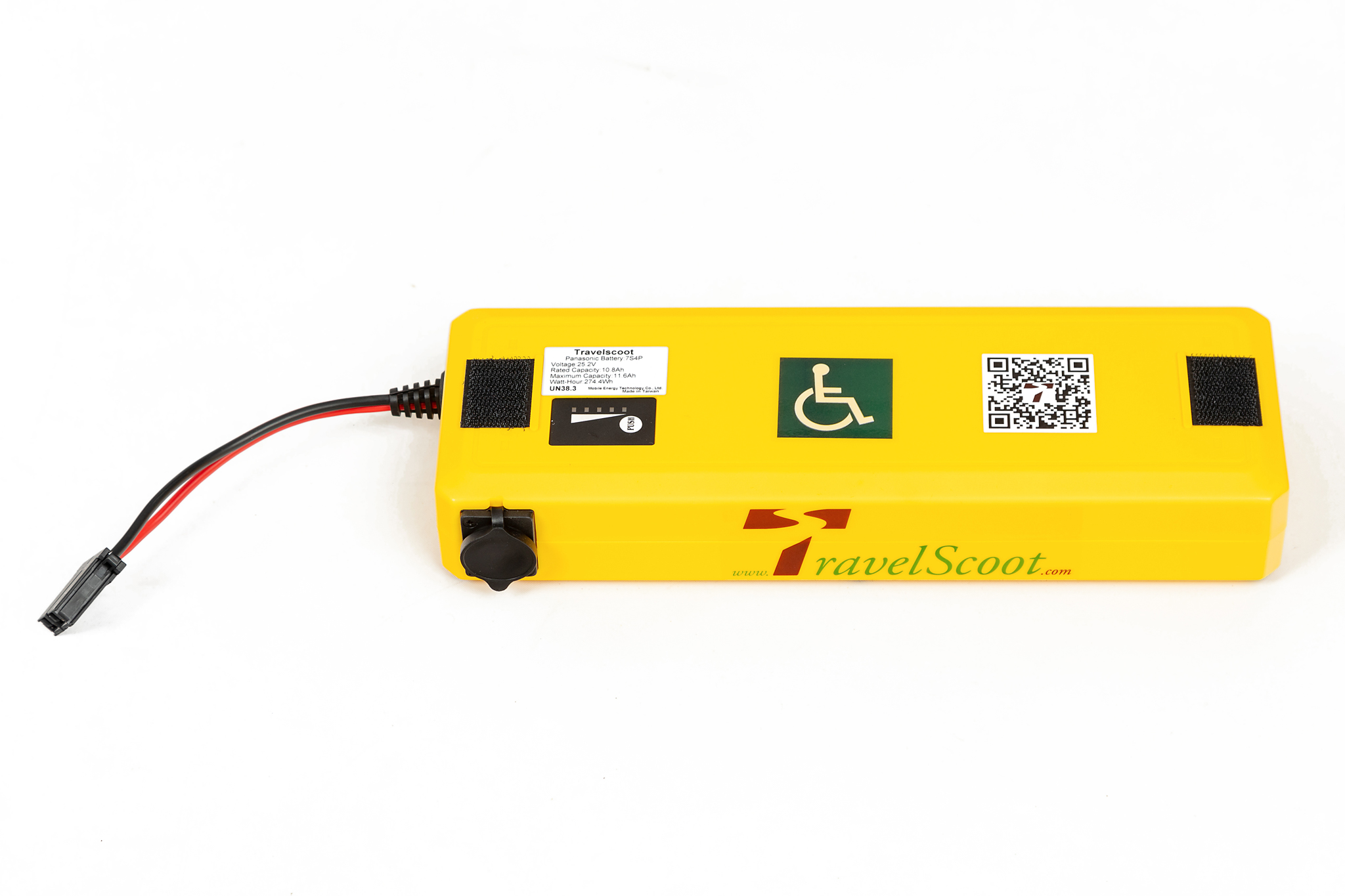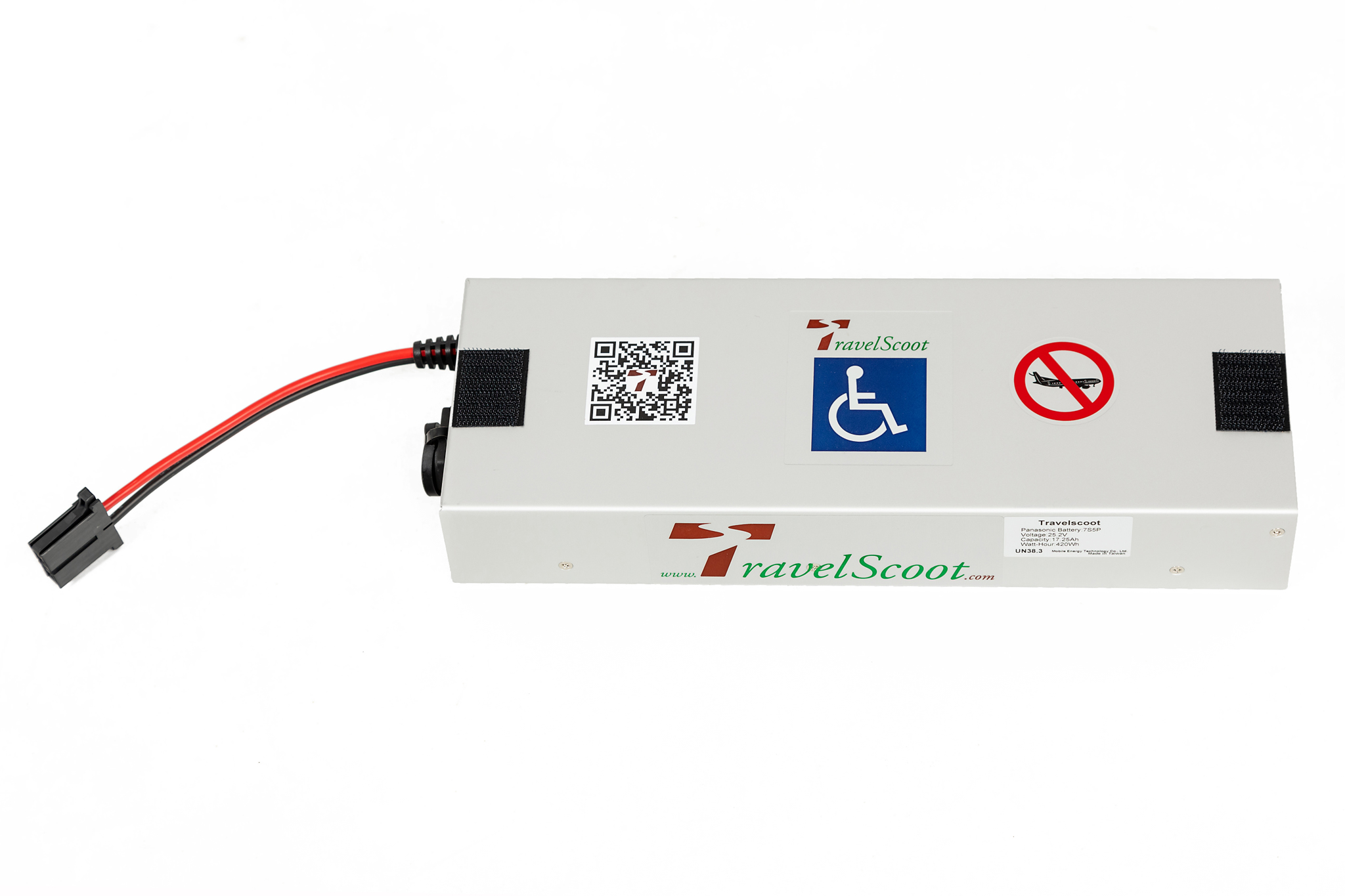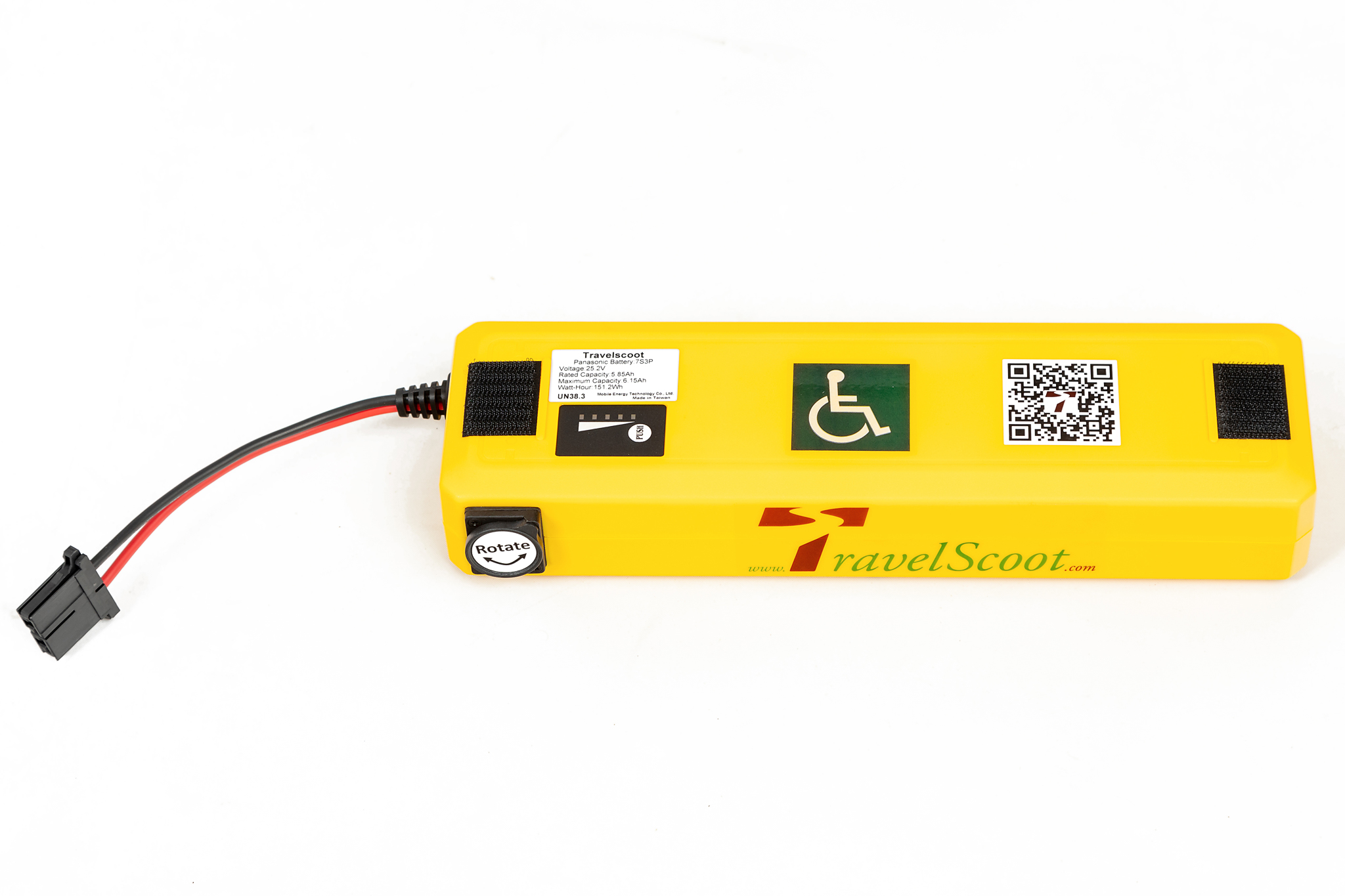Battery Info
LIGHTER
STRONGER
FARTHER

TravelScoot lithium-ion batteries are made of 100% Panasonic cells, housed in either a Sabic C6600 or Aluminium casing. Our airline-approved batteries feature a UL 94-5VB flame rating, are high impact resistant, and bromine and chlorine-free. When you buy a TravelScoot, you can rest assured that you are buying one of the safest batteries money can buy. In our 18 years of business, we have a 100% track record with zero fires; period. Our batteries are made to last. The longest-lasting battery on record is 13 years old, with many replacing batteries after ten years, however, customers can realistically expect 6+ years out of their batteries. We also have the best warranty on our batteries in the industry; 2 years (most are 6 months).
Please note that the battery functions as the figurative gas tank of the scooter and doesn't affect its speed or performance.
252
10-15 miles
Ohe 252 gives you the most bang for your buck. It is our highest-capacity airline-approved battery. At 3.5 lbs, it was designed to last the most demanding site-seeing tours around the world. Perfect for the Louvre or Disneyland.
420
13-22 miles
Dubbed the Long-Ranger and our only battery not airline-approved, it is designed to go the distance when you need it the most. At 5.5 lbs. and almost double the distance, the Smithsonian shouldn't be a problem.
*mileage depends on rider weight and terrain
HOW TO INSTALL THE BATTERY
GENERAL BATTERY INFO
Dangerous Goods Lithium-Ion Batteries
All lithium-ion (li-ion) batteries are considered hazardous material (Dangerous Goods). As such, they are subject to restrictions when carried on board passenger aircraft, shipped by mail, cargo, etc.
Air Travel with Lithium-ion Batteries
The transportation of lithium-ion powered mobility devices by persons with walking disabilities on board passenger planes has largely been settled. Please see our Travel Info page for step-by-step directions on how to travel by air with the TravelScoot mobility scooter.
Shipping Li-ion Batteries
Shipping batteries is considerably more complicated. Numerous regulations apply to the quantity, capacity, and total weight of batteries per package, and whether the batteries are being shipped alone or with the device they operate (scooter, wheelchair etc.). Further regulations apply to shipping mode (whether by ground or air, and whether by cargo or passenger aircraft). All shipments containing lithium-ion batteries must be identified with official Dangerous Goods labeling.
In order to even be eligible for shipment and transport, all li-ion batteries must have successfully passed testing per UN38.3 by an internationally accredited testing facility. All batteries carrying the TravelScoot ™ brand name have been tested accordingly.
Only li-ion batteries with a capacity of 100Wh or less, and no more than two per package, can be shipped without special markings or dangerous goods surcharges. However, these packages must still be identified with the standard battery symbols. These low-capacity batteries are not suitable for use in personal mobility devices or similar electric vehicles. The shipment of electric scooters and vehicles will always require compliance with Dangerous Goods regulations and, unfortunately, often high surcharges.



